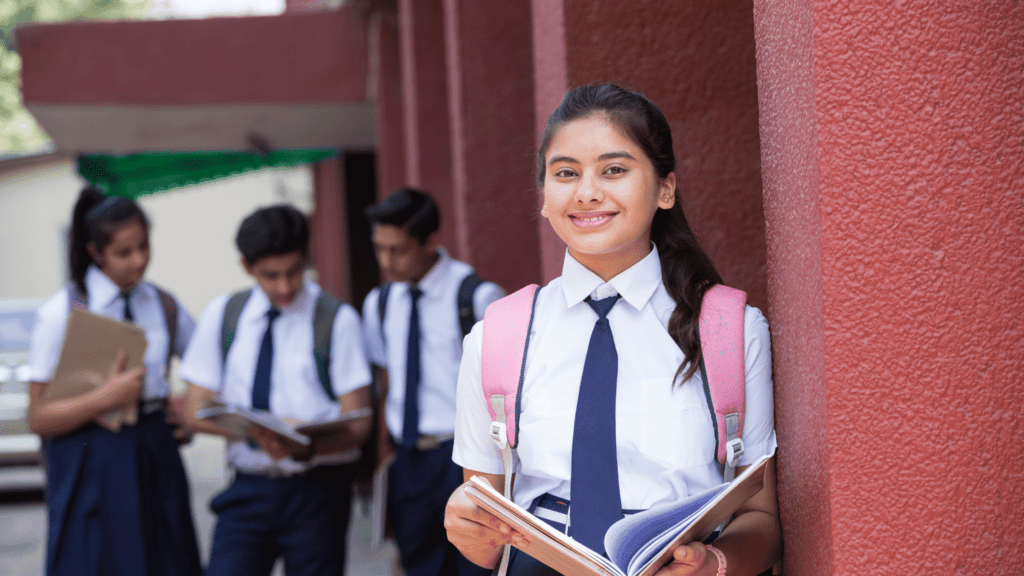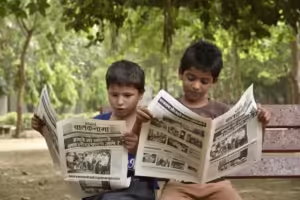Doesn’t the education system in India stress us? Being a parent, teacher, guide, or student; we all have redundant pressure. The anxiety and stress to finish the syllabus, appear for the exams and get good grades. Is that all the education is expected to give us?
“We should know that the great task of our institution is to provide for the education of the mind and all the senses through various activities”, says Rabindra Nath Tagore.
It is high time we need to change our education system and keep the children at the center of learning. Since its inception in the early 1900s, the Montessori approach has surpassed national borders, and it still serves as a universal educational strategy. Is this the education Method that is going to bring the desired change to the Indian education system?
The Need to Change the Indian Education System
The Indian educational system is still predominantly focused on teaching English as a first language and heavily geared towards high-stakes tests. Indian universities face intense competition. The images of the “toppers” with the highest scores can be seen all throughout the nation on billboards, in newspapers, and even on rickshaws.
However, Montessori educators in India are taking a part in a movement that seeks to shatter this established paradigm. The instructors are trying to reach more Indian children for Montessori education. Montessori education for children and adolescents is steadily expanding in India. The setup enables children to find their own space.
In her document named – In India / A Bold Experiment in Teaching Values, Cottom, Carolyn says, “When we leave a garden barren, it is certain that weeds will grow. Similarly, as traditional social structures erode and families lose their focus on children, random forces take over. With no agreement about which values to teach, schools and families allow children to learn from whatever sources are available. Yet, with the proper guidance from families and professional educators, children can and will excel.”
Montessori in India
Montessori education made an early entry into India, long before Dr. Montessori visited the country. Indians were among the devoted students in the earliest training courses that Dr. Montessori gave in Rome in 1913.
Dr. Maria Montessori arrived in Madras in November 1939 at the request of the Arundales (Dr. Arundale and Rukmini Devi Arundale). She then conducted the first AMI (Accredited Montessori Internationale) course in Adyar. Since then, the Montessori Method has been transforming the lives of the children in India. The educators, practitioners, and experts of Montessori education have worked hard to bring a change to the Indian education System. The Montessori movement that started with a small group is now deeply rooted and is steadily growing in strength to unleash the maximum potential in a child.
Montessori Education from Early Childhood to Adolescents
“My vision of the future is no longer of people taking exams and proceeding on that certification from the secondary school to the university, but of individuals passing from one stage of independence to a higher, by means of their own activity, through their own effort of will, which constitutes the inner evolution of the individual” Maria Montessori
In India, Montessori preschools are particularly admired, but surprisingly, many parents are unaware that the Montessori methodology and practice also apply to the higher grades. Both elementary and secondary school children can receive a Montessori education.
There have been many elementary schools opened up in various locations in India. Though the adolescent Montessori community is fairly new, but is gaining popularity. The country’s first adolescent Montessori community began at Praganya Montessori in Hyderabad, in 2017. A second adolescent community came up at Medha Montessori in Hyderabad in 2019 – as stated in a newspaper–The Hindu.
Also Read, Principles of Montessori Education
How Montessori Schools Impact the Children?
When children are allowed to learn at their own pace and in their own way, they enjoy it. The Montessori educational methods are designed to foster in the child a love of learning that lasts a lifetime and an insatiable curiosity about the world.
The Montessori educational philosophy aims to teach children more than just reading and writing. Students that attend a Montessori school are noted for having high levels of respect for others and strong self-esteem. They exhibit greater warmth and compassion toward their peers in addition to having more confidence in themselves. Their personal lives are also influenced by their focus on these subjects at school.
The more details and an in depth of the Montessori impact on children are shared on our previous blogs……..
Research says that Montessori will bring a change in India
A research by Mira Debs, published in Cambridge University Press says that “there are admittedly considerable challenges in depicting a multifaceted and geographically disparate educational movement over the span of more than a hundred years in a country of 1.38 billion people marked by linguistic, religious, and socioeconomic diversity.”
With the expansion of early childhood education in India during the 1990s, Montessori has emerged as a required brand that denotes global learning and academic competition. It is being adopted by many school franchises, commonly with few ties to the Montessori educational philosophy.
Indian educators believed and anticipated that the Montessori Method of education can be used to establish nation building aspects. This can happen as the Montessori Method focuses on individual development, encourages independence, fosters native cultures, and also brings children together from different religions.
A report from the 2022 global Montessori census documents a total of 15,763 Montessori schools around the globe and estimates that roughly 9% of these are fully government funded. The report also states that the Netherlands, and India have the largest number of government-funded or public Montessori programs. Montessori education has spread worldwide, with concentrations in large countries on almost all continents.
In some of India’s wealthy tech hubs, such as Gurugram, and in the southern cities of Hyderabad, Bangalore, and Chennai, the expansion of elite Montessori has been strongest over the past thirty years.
Today, there is a chance to increase access and give the children developmentally appropriate education as the Indian government’s educational priorities continue to promote early childhood education, learner-centered education, and hands-on learning.
And certainly, there has been a rise in Montessori education in India. Read its whys and hows in our blog that has in-depths of Montessori education needs in India.
Social Media gives a Contradictory Aspect
Mridula Shridhar, Co-Founder at Kreedo Early Childhood Solutions, shares insights in a post that adds the value to the change the Montessori School would bring in India. According to her facts and figures, it is a big challenge to align everyone in a country like India, where people come from different thoughts, religions, and castes.
She adds that parents are aware that the Montessori Method is effective for all children. Still, they continue to use the justification that the child will eventually need to adjust to a “normal” way of life that is dictated by dictatorship or indulgence. For Indian parents, the idea of freedom leading to self-discipline is simply difficult to embrace.
Mridula Shridhar specifies that the only way to make Montessori education as a dominant method is to follow a blended approach. This way we can make this wonderful methodology help the children across the country.
Conclusion
The post-independence period mostly witnessed English medium as the favored educational institutions. When in the 1990s economic liberalization took place, the expansion of education happened. Montessori in preschools and international pedagogies came into picture.
The Montessori education presence in the Indian system since the last century reveals that Indians have well adapted the system. The Montessori school will bring the desired change and would keep it relevant to the society through contested framings and philosophy.



